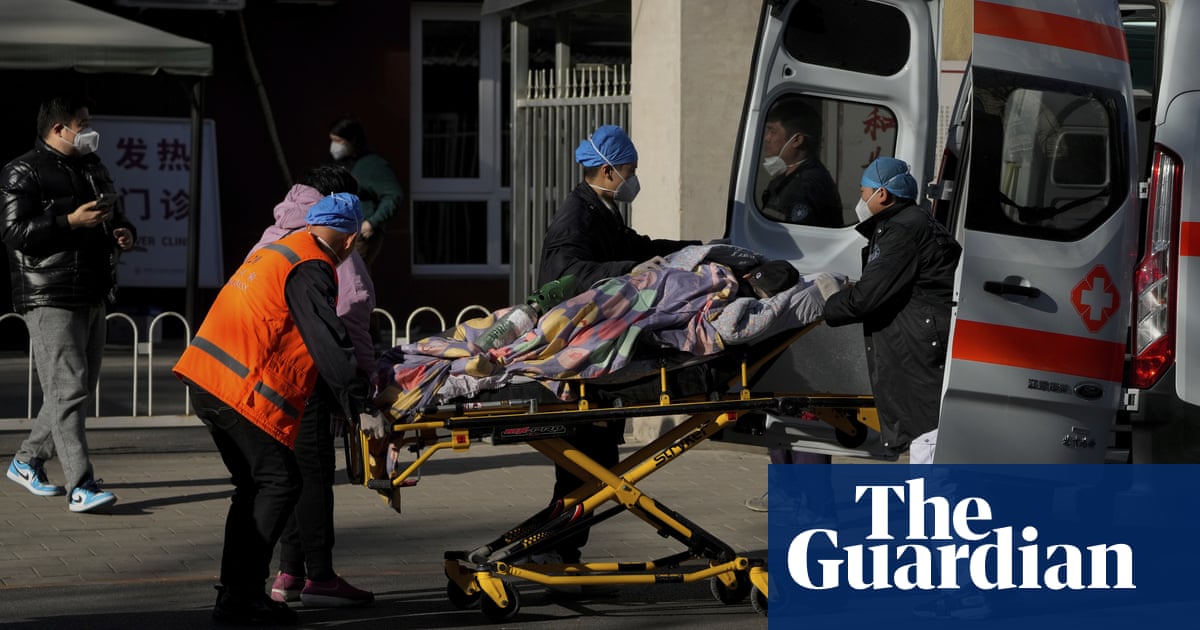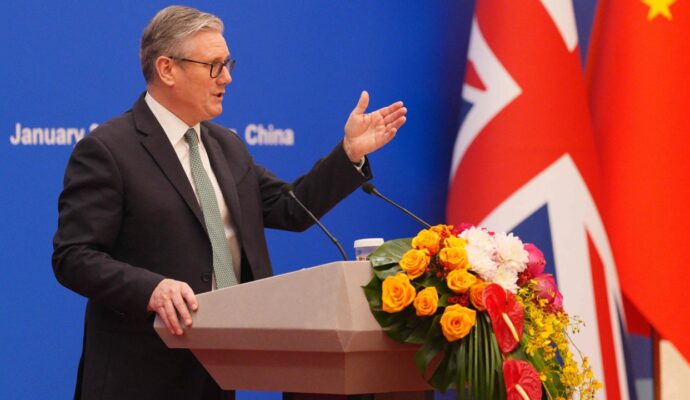
Almost 60,000 people have died of Covid in China in the past five weeks, authorities have announced.
China is in the grip of a major wave of the virus after abruptly lifting its zero-Covid policy restrictions in December, with some major cities estimating between 70% and 90% of their populations have been infected.
Anecdotal reports and long queues at morgues and crematoriums point to a high death toll but until Saturday, authorities had only officially recorded a few dozen Covid-19 deaths.
The shortfall was due to stringent definitions of how a death is attributed to Covid. Only people who died of respiratory failure were counted. The World Health Organization last week criticised the new definition as too narrow and an under-representation of the true impact of the outbreak. Chinese authorities responded that it was not necessary to attribute every death.
On Saturday, however, Jiao Yahui, the head of the Bureau of Medical Administration, announced there had in fact been 59,938 Covid deaths between 8 December and 12 January. It included about 5,500 who died of respiratory failure, while the rest also had underlying health conditions. The average age of those who died was 80, Jiao said, with 90.1% aged 65 and above.
The death toll given on Saturday includes only those who died in hospital and is likely still lower than the true total.
There have been concerns about further spread of the virus ahead of the lunar new year holiday beginning next week. People had been urged not to visit their elderly relatives in order to protect them.
Jiao said case rates were declining and the peak had passed in most areas. She said the daily number of people going to fever clinics peaked at 2.9 million on 23 December and had fallen by 83% to 477,000 on Thursday.
“These data show the national emergency peak has passed,” she said.
China’s government had been under criticism from other governments and the WHO over its lack of data transparency. It stopped publishing most infection data since the sharp rise began. Several nations have enacted travel restrictions or mandatory testing on incoming travellers from China, prompting some retaliatory measures from Beijing against incoming travellers from Japan and South Korea.

